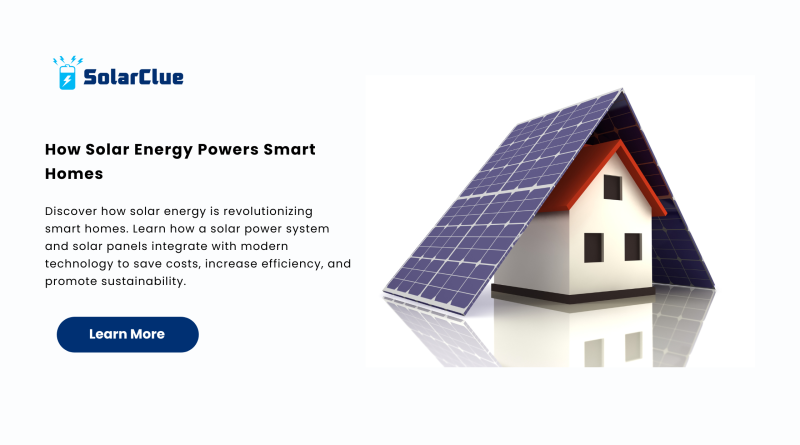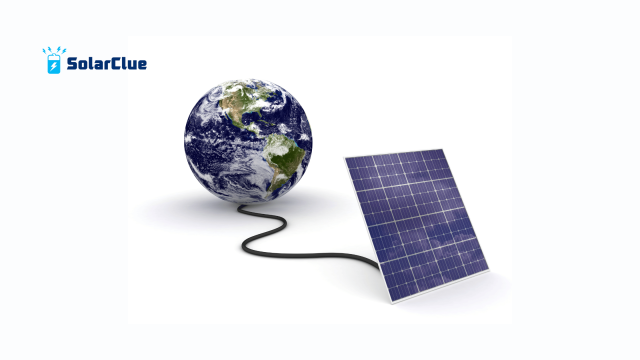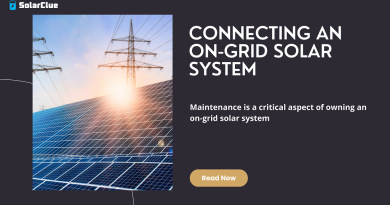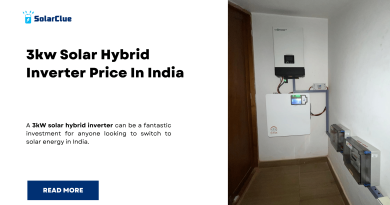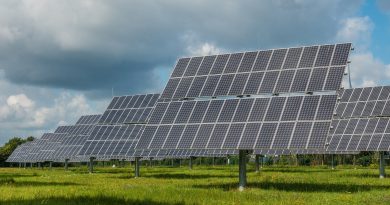How Solar Energy Powers Smart Homes
How Solar Energy Powers Smart Homes: The rise of smart homes is changing the way we live, making our spaces more efficient, convenient, and sustainable. From voice-controlled lighting to smart thermostats, technology is helping us save energy while improving comfort. But the real game-changer comes when smart technology pairs with solar energy. By combining intelligent devices with a solar power system, homeowners can reduce energy bills, minimize their carbon footprint, and achieve greater independence from traditional electricity sources.
In this blog, we’ll explore how solar panels power smart homes, the benefits of integrating renewable energy with automation, and the future of sustainable living.
Table of Contents
The Role of Solar Energy in Smart Homes
A solar power system works by converting sunlight into usable electricity through solar panels. This clean and renewable source of energy can seamlessly integrate with smart home devices to create an ecosystem that is both eco-friendly and cost-effective.
Unlike traditional homes that depend entirely on the grid, smart homes powered by solar energy can intelligently manage electricity usage. With features like energy monitoring, automated load balancing, and storage through solar batteries, homeowners gain control over when and how they use electricity.
Benefits of Using Solar Energy in Smart Homes
1. Reduced Energy Bills
Smart homes already save power through automation, but when paired with solar panels, the savings multiply. A well-sized solar power system can cover most, if not all, of a household’s electricity needs.
2. Energy Independence
Relying solely on the grid can leave you vulnerable to price hikes and outages. With solar energy, smart homes can become self-reliant, especially when paired with energy storage solutions.
3. Lower Carbon Footprint
Switching to solar power systems dramatically reduces reliance on fossil fuels. Combined with smart energy usage, it helps homeowners live more sustainably.
4. Smarter Energy Management
Solar-powered smart homes can automatically adjust device usage based on solar production levels. For example, smart systems can run heavy appliances like washing machines during peak sunlight hours.
How Solar Panels Integrate with Smart Home Technology
Smart Inverters
Modern solar power systems use smart inverters that allow two-way communication between your solar panels and home automation devices. This ensures optimized power flow and real-time monitoring.
Energy Monitoring Apps
Most smart homes use mobile applications to control devices. These apps can also track solar energy production and consumption, allowing homeowners to make informed decisions about energy use.
Automated Load Shifting
With automation, smart homes can shift high-energy tasks—such as charging electric vehicles or running dishwashers—to times when solar panels are generating maximum output.
Integration with Smart Batteries
Pairing solar power systems with smart batteries helps store excess energy during the day and use it at night. Automation ensures that stored solar energy is used before drawing from the grid.
Future of Smart Homes with Solar Energy
The future of smart homes is undoubtedly tied to renewable energy. With advancements in artificial intelligence, the integration of solar panels with smart devices will become even more intelligent. Smart grids will allow homes not only to consume but also to share solar energy with the community, creating interconnected, sustainable neighborhoods.
Soon, we may see entire smart cities where homes powered by solar power systems communicate with each other, ensuring efficient energy distribution and minimal waste.
Challenges and Considerations
While the combination of solar energy and smart home technology is promising, there are challenges to consider:
-
Initial Costs: Installing a solar panel system requires upfront investment, though subsidies and financing options can help.
-
Maintenance: Regular cleaning and upkeep of solar panels ensure consistent performance.
-
Compatibility: Not all smart devices integrate smoothly with solar systems, requiring careful planning.
Despite these challenges, the long-term benefits of combining solar power systems with smart home technology outweigh the drawbacks.
FAQs
1. How do solar panels power smart homes?
Solar panels capture sunlight and convert it into electricity, which powers smart devices. Excess energy can be stored in batteries or exported to the grid.
2. Can a solar power system run an entire smart home?
Yes, a properly sized solar power system can generate enough electricity to run all smart appliances and systems in a home.
3. Do solar panels work at night in smart homes?
No, solar panels don’t generate electricity at night, but with smart batteries, stored energy can power devices after sunset.
4. Is it cost-effective to combine solar energy with smart home devices?
Absolutely. While the initial cost may be higher, homeowners save significantly on electricity bills and gain long-term financial benefits.
5. What is the future of solar energy in smart homes?
With advancements in AI and automation, smart homes will become more efficient, sustainable, and self-reliant, using solar energy as the primary power source.
Conclusion
Smart homes powered by solar energy are more than just a trend—they are the future of sustainable living. By integrating solar panels with smart technologies, homeowners gain control, save money, and contribute to a greener planet. The combination of intelligence and renewable power is paving the way for homes that are not only smart but also sustainable.
If you are ready to embrace this future, start exploring smart and sustainable solutions with us today. Visit solarclue.com and blog.solarclue.com to discover more about how solar energy can transform your home.

